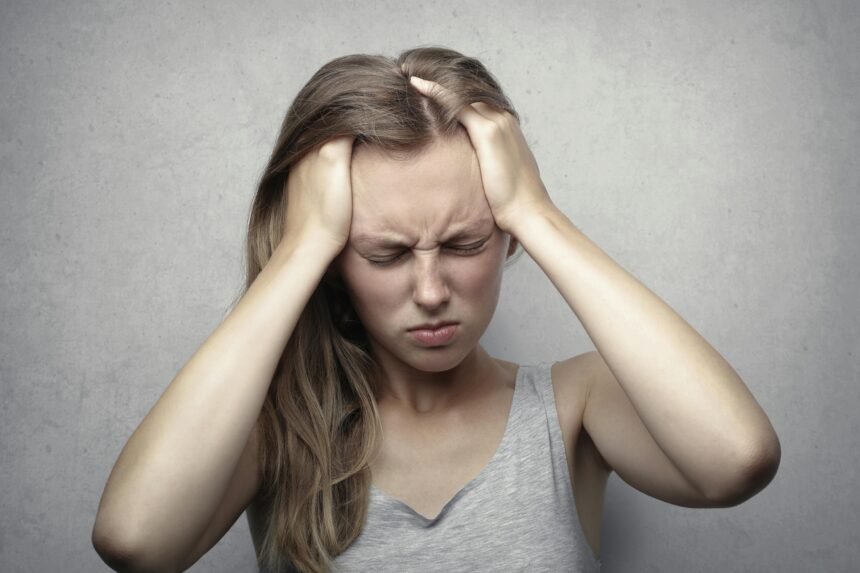Depression affects millions of women worldwide, often influenced by hormonal fluctuations, societal pressures, and unique life experiences. Ayurveda, the ancient Indian system of medicine, offers a holistic approach to managing depression by addressing the mind, body, and spirit. This blog explores Ayurvedic strategies tailored for women, focusing on balancing the doshas, nurturing mental well-being, and fostering resilience.
Understanding Depression in Ayurveda
In Ayurveda, depression is viewed as an imbalance in the doshas (Vata, Pitta, Kapha) and a disturbance in manas (the mind). It is often linked to diminished ojas (vitality) and impaired sattva (mental clarity). Women may be particularly susceptible due to hormonal shifts during menstruation, pregnancy, postpartum, or menopause, which can aggravate Vata or Pitta. Ayurveda emphasizes prevention and management through lifestyle, diet, herbs, and mindfulness practices.
Key Ayurvedic Principles for Mental Health
- Balance the Doshas: Vata imbalances can cause anxiety and restlessness, Pitta may lead to irritability or anger, and Kapha can manifest as lethargy or sadness. Identifying your dominant dosha helps tailor interventions.
- Nourish Ojas: Ojas supports emotional stability and resilience. Practices like meditation and nourishing foods enhance ojas.
- Clear Ama (Toxins): Mental fog and emotional stagnation often stem from ama, which can be cleared through proper digestion and detoxification.
- Cultivate Sattva: A sattvic lifestyle promotes clarity, peace, and emotional balance, countering the tamasic (dull) or rajasic (overactive) states associated with depression.


Holistic Ayurvedic Strategies for Women’s Depression Management
1. Adopt a Sattvic Diet Tailored for Women
A balanced diet supports mental and emotional health by stabilizing the doshas and nourishing the body.
- Vata-Balancing Foods (for anxiety, restlessness):
Warm, cooked foods like soups, stews, and kitchari.
Healthy fats like ghee, sesame oil, or almonds to ground Vata.
Sweet, grounding foods like sweet potatoes, rice, and ripe fruits (bananas, mangoes).
- Pitta-Balancing Foods (for irritability, anger):
Cooling foods like cucumber, coconut water, and leafy greens.
Sweet fruits like pears and melons to soothe inflammation.
Avoid spicy, oily, or acidic foods that aggravate Pitta.
- Kapha-Balancing Foods (for lethargy, sadness):
Light, warm foods like quinoa, barley, and steamed vegetables.
Spices like ginger, turmeric, and black pepper to stimulate digestion.
Avoid heavy, sweet, or dairy-rich foods that increase Kapha.
- Women-Specific Nutrition:
Iron-rich foods (spinach, beets, lentils) to support energy during menstruation.
Calcium-rich foods (sesame seeds, ragi) for bone and hormonal health during menopause.
Phytoestrogen-rich foods (flaxseeds, soy) to ease menopausal symptoms.
Tips:
- Eat mindfully in a calm environment.
- Avoid processed foods, caffeine, and alcohol, which disrupt dosha balance.
- Sip warm water or herbal teas (like chamomile or tulsi) throughout the day.
2. Embrace Mindful Daily Routines (Dinacharya)
A consistent routine stabilizes Vata, which is often imbalanced in depression:
- Wake Early: Rise by 6 a.m. to align with natural rhythms and promote sattva.
- Self-Massage (Abhyanga): Use warm sesame oil (Vata), coconut oil (Pitta), or mustard oil (Kapha) to calm the nervous system and improve mood.
- Morning Meditation: Practice 10–15 minutes of mindfulness or mantra meditation to cultivate mental clarity.
- Sleep Hygiene: Aim for 7–8 hours of sleep, retiring by 10 p.m. to avoid Vata aggravation.
3. Practice Yoga and Pranayama
Yoga and breathwork are powerful tools for managing depression by calming the mind and balancing hormones:
- Yoga Poses:
Balasana (Child’s Pose): Soothes Vata and promotes relaxation.
Bhujangasana (Cobra Pose): Opens the heart center, uplifting mood.
Savasana (Corpse Pose): Reduces stress and restores calm.
Surya Namaskar (Sun Salutation): Performed gently, it energizes Kapha types.
- Pranayama:
Anulom Vilom (Alternate Nostril Breathing): Balances Vata and calms the mind.
Bhramari (Humming Bee Breath): Reduces anxiety and promotes emotional release.
Kapalbhati (Skull-Shining Breath): Energizes Kapha types but should be avoided if Pitta is high.
4. Incorporate Ayurvedic Herbs
Ayurvedic herbs can support emotional balance and nervous system health. Always consult an Ayurvedic practitioner before use, especially if on antidepressants or other medications:
- Ashwagandha: Reduces stress, supports adrenal health, and stabilizes mood.
- Brahmi: Enhances cognitive function and calms the mind.
- Shankhpushpi: Improves mental clarity and reduces anxiety.
- Jatamansi: Soothes Vata and promotes restful sleep.
- Saffron: Uplifts mood and balances hormones (use sparingly due to potency).
Women-Specific Herbs:
- Shatavari: Supports hormonal balance and emotional resilience, especially during menstruation or menopause.
- Kumari (Aloe Vera): Cools Pitta and supports detoxification.
5. Manage Stress and Emotions
Emotional health is central to managing depression in Ayurveda:
- Journaling: Reflect on emotions to release tamasic energy.
- Gratitude Practice: Focus on positive aspects to cultivate sattva.
- Community Support: Build connections with loved ones to counter feelings of isolation.
- Counseling: Combine Ayurveda with professional therapy for a holistic approach.
6. Address Hormonal Influences
Women’s depression is often tied to hormonal changes. Ayurveda offers targeted strategies:
- Menstruation: Use warming spices (cinnamon, ginger) and rest to balance Vata and Pitta.
- Postpartum: Nourish with ojas-building foods (dates, milk, ghee) and gentle abhyanga to support recovery.
- Menopause: Incorporate cooling herbs (shatavari, licorice) and avoid overheating activities to manage Pitta.
7. Detoxify Mind and Body
Toxins (ama) can contribute to mental fog and emotional stagnation:
- Daily Detox: Drink warm water with lemon or triphala tea to clear ama.
- Seasonal Panchakarma: Under professional guidance, undergo cleansing therapies like virechana (purgation) to reset the system.
- Mental Detox: Limit screen time and negative media to reduce mental ama.
8. Foster Spiritual Connection
Ayurveda views the spirit as integral to mental health:
- Meditation: Practice loving-kindness (metta) meditation to foster self-compassion.
- Mantra Chanting: Use calming mantras like “Om Shanti” to promote peace.
- Nature Connection: Spend time in nature to ground Vata and uplift mood.
Lifestyle Tips for Long-Term Emotional Wellness
- Moderate Exercise: Engage in gentle activities like walking or swimming to boost endorphins without overtaxing the body.
- Creative Expression: Painting, writing, or dancing can release pent-up emotions.
- Seasonal Adjustments: Adapt routines to seasonal changes (e.g., warming practices in winter, cooling in summer).
- Avoid Overstimulation: Limit caffeine, alcohol, and excessive multitasking, which aggravate Vata and Pitta.
Conclusion
Ayurveda offers a compassionate, holistic approach to managing women’s depression by addressing physical, emotional, and spiritual imbalances. By adopting a sattvic diet, mindful routines, yoga, herbs, and stress-relief practices, women can cultivate resilience and emotional well-being. Always work with a qualified Ayurvedic practitioner and mental health professional to personalize these strategies, especially if managing clinical depression or hormonal conditions.


